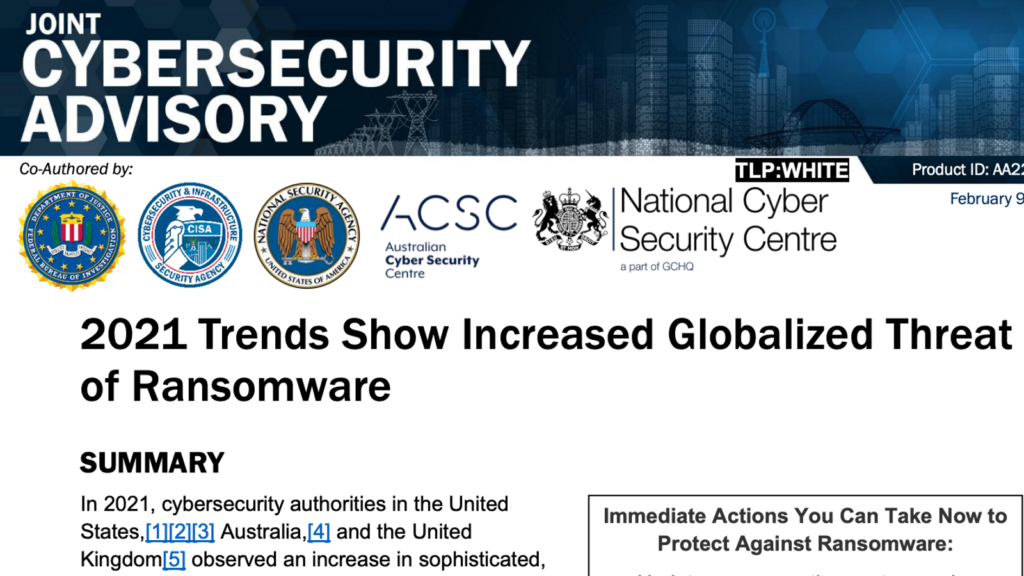

Cyber security experts from the UK, US, and Australia are warning of a “growing wave of increasingly sophisticated ransomware attacks” which could have “devastating consequences”.
Chief executive officers and board members are being strongly encourages to familiarise themselves with the risks and “ensure their IT teams are taking the correct actions to bolster resilience”.
KP Snacks confirmed last week that a ransomware attack was expected to lead to a shortage of several popular crisp and nuts brands on grocery store shelves.
Last year, an attack on a critical oil pipeline in the US threatened transport chaos when petrol stations in America’s eastern states started to run low on supplies.
Increased, globalised threat from ransomware
The joint advisory published by the nations’ cyber security agencies states that the trends show an increased, globalised threat, although no figures were provided to contextualise this increase.
In particular, the advisory warns there is a growing commercial underground for criminals to purchase hacking services, trade stolen data, and extort victims in different ways.
The healthcare and critical infrastructure sectors are among the most risky areas for the authorities due to the immediate impact an attack could have on people’s safety.
Lindy Cameron, the chief executive of the UK National Cyber Security Centre (NCSC), warned that ransomware was “a rising global threat with potentially devastating consequences”.
The cybersecurity director at the US National Security Agency, Rob Joyce, added: “When critical infrastructure is held at risk by foreign hackers operating from a safe haven in an adversary country, that’s a national security problem.”
“The ransomware scourge is a significant focus area for NSA as we generate insights alongside our partners. Network defenders should take action on the mitigations in the advisory,” he went on.
Ms Cameron previously warned that the challenge ransomware gangs posed to law enforcement was “acute” as “the criminals responsible often operate beyond our borders, are increasingly successful in their endeavours”.
“We expect ransomware will continue to be an attractive route for criminals as long as organisations remain vulnerable and continue to pay,” she said at the time.
NCSC recently launched a ransomware hub to advise British businesses on how ransomware works, whether they should pay a ransom, and how to prevent a successful attack.





More Stories
5 Reasons Why Everyone Should Look Forward to Save Earth Mission’s Takeoff Event
Save Earth Mission’s Takeoff Event Countdown Starts: Get Ready to Witness History
The Save Earth Mission: A Global Movement Towards a Sustainable Future